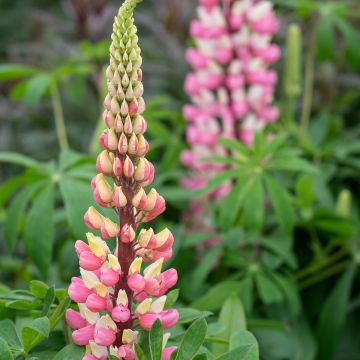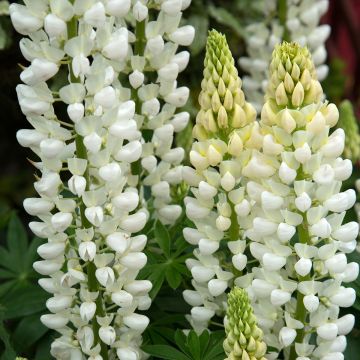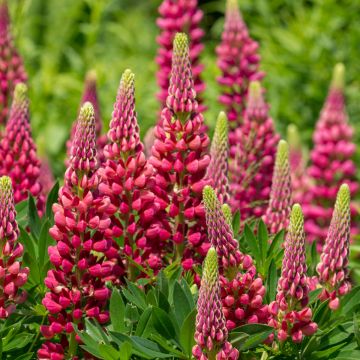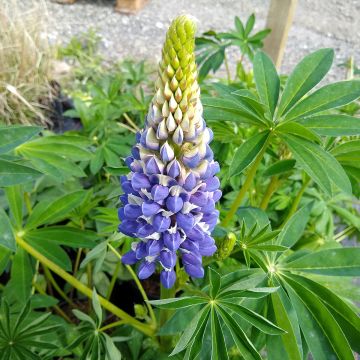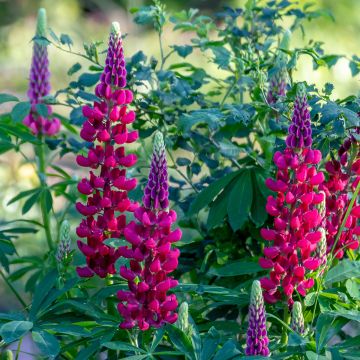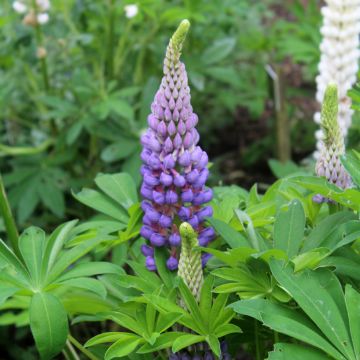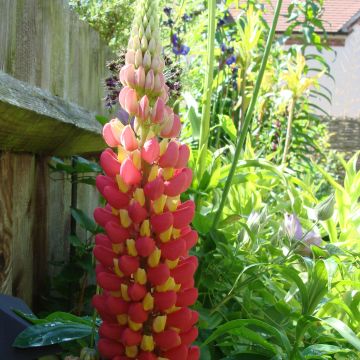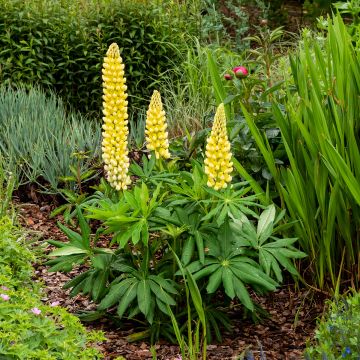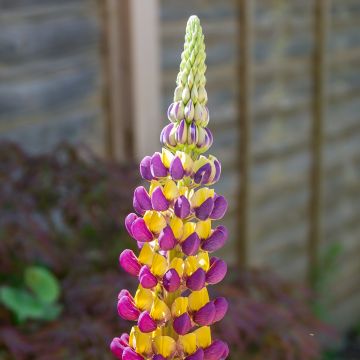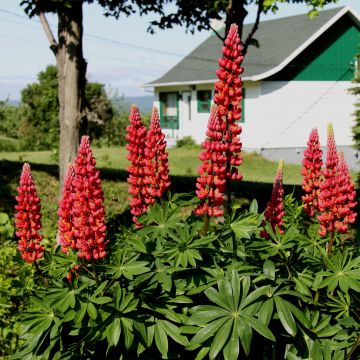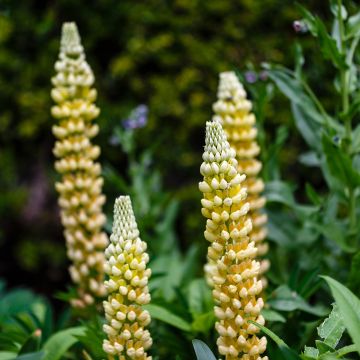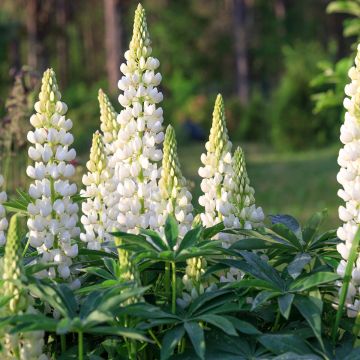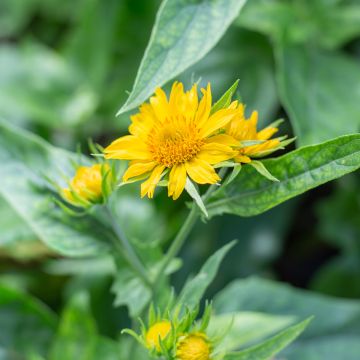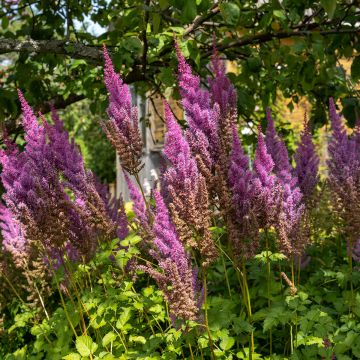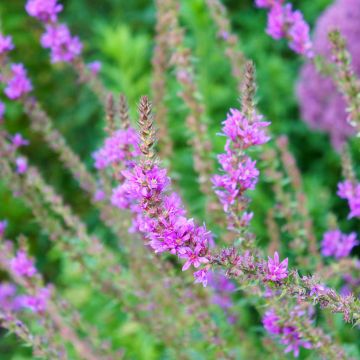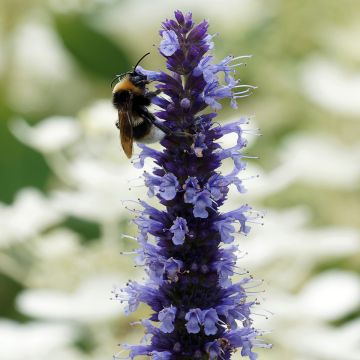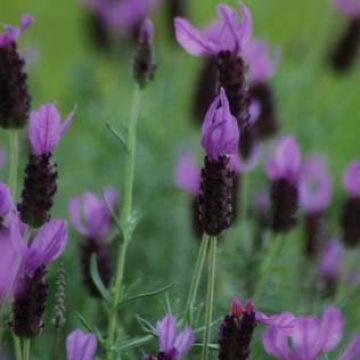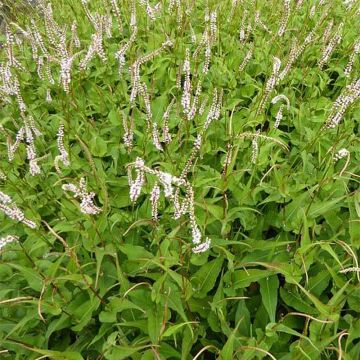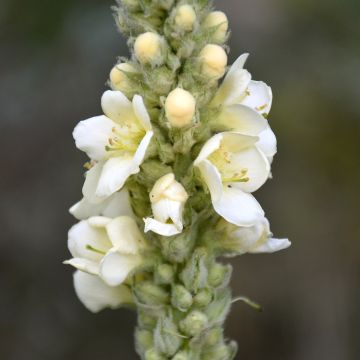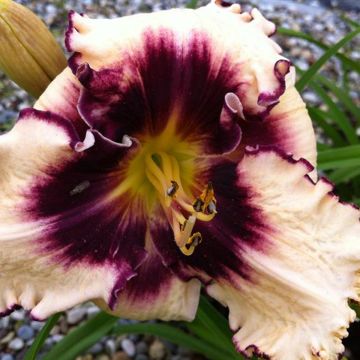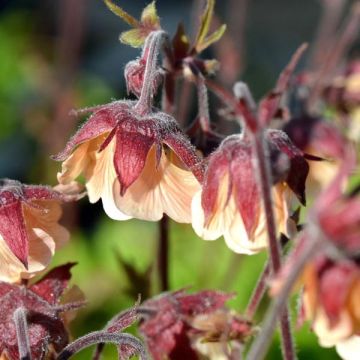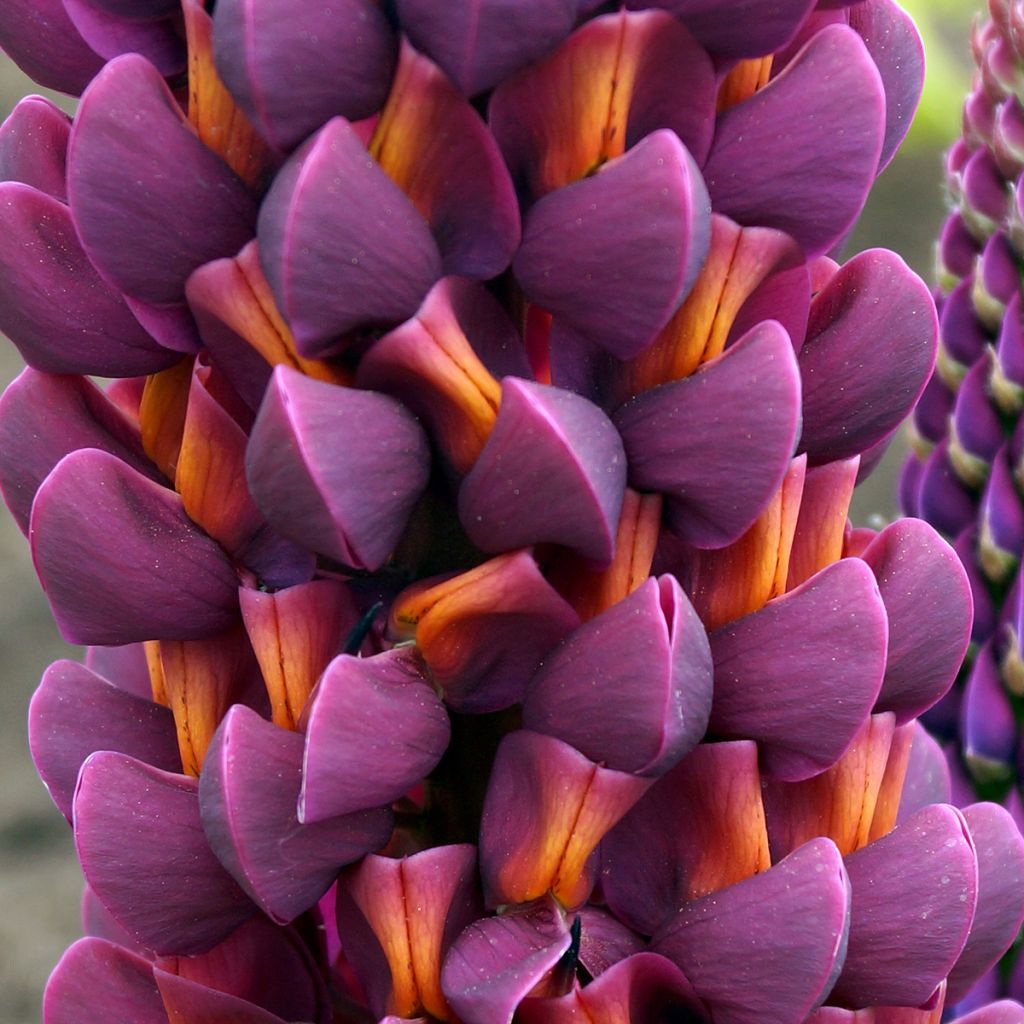

Lupinus polyphyllus Masterpiece
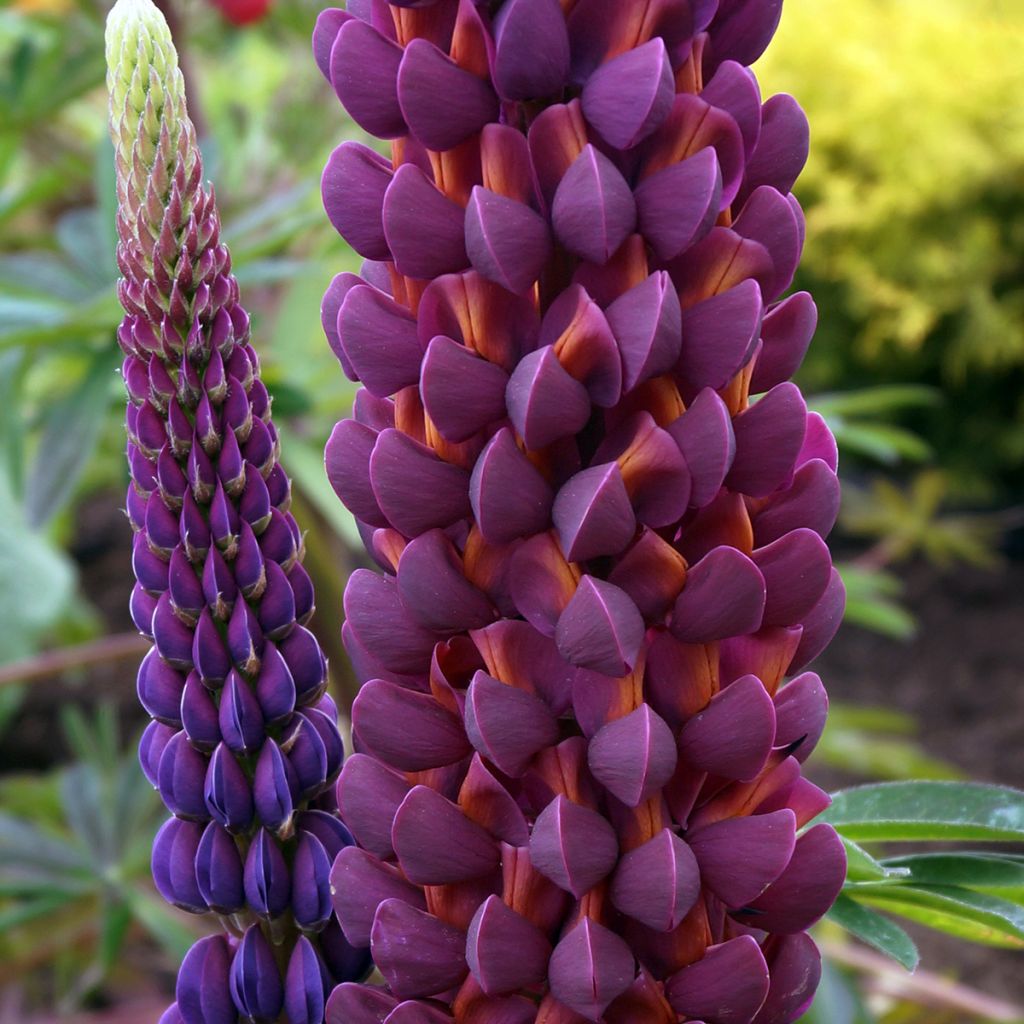

Lupinus polyphyllus Masterpiece
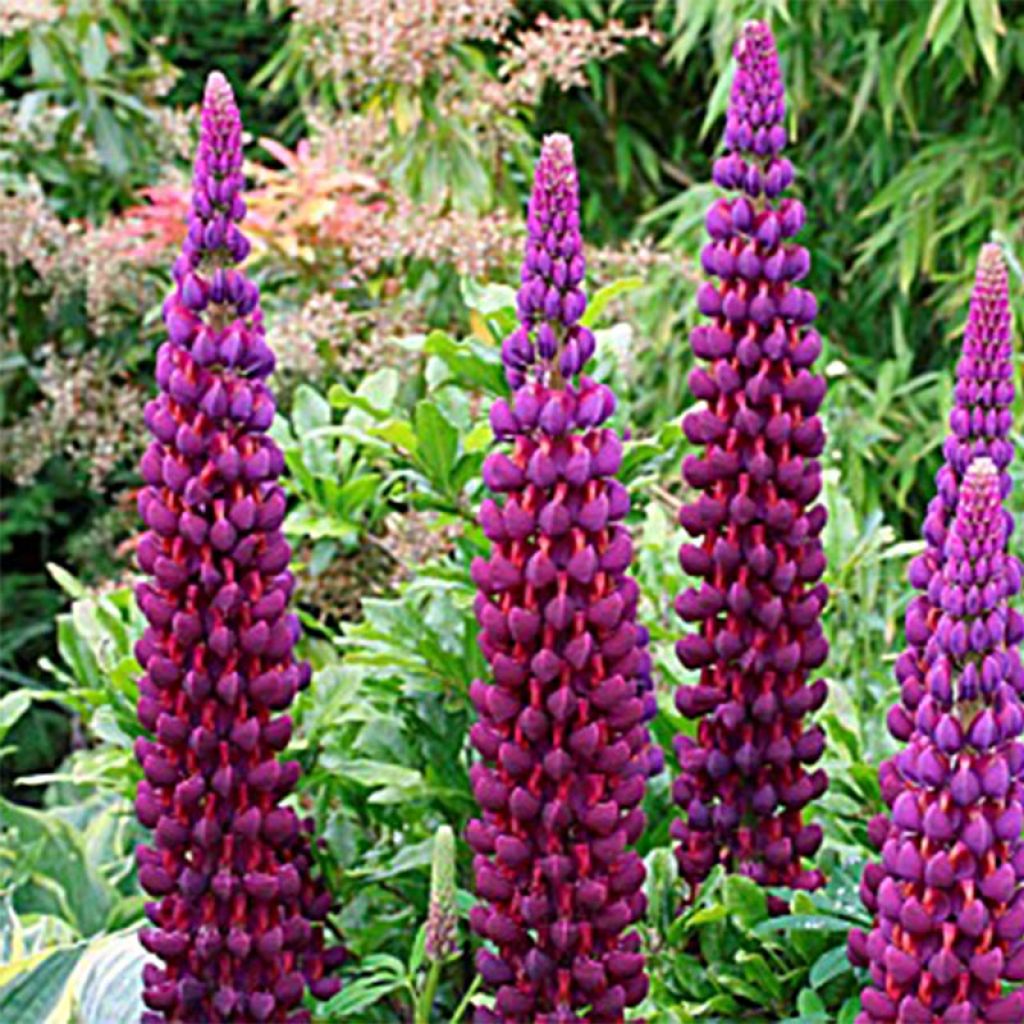

Lupinus polyphyllus Masterpiece
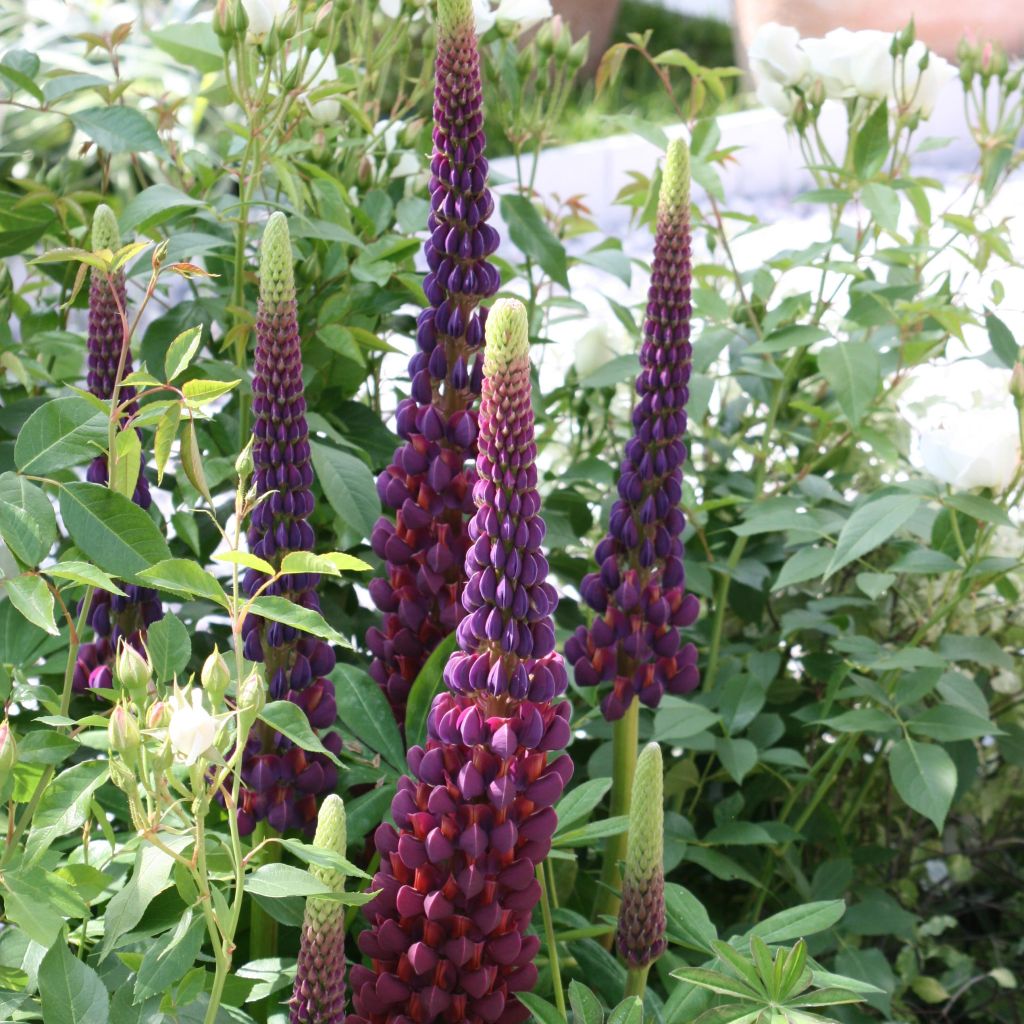

Lupinus polyphyllus Masterpiece
Lupinus polyphyllus Masterpiece
Lupinus x polyphyllus Masterpiece
Garden Lupin, Large-leaved Lupin, Big-leaved Lupin, Russell Lupin
This plant ordered last year, produced only one flower and completely disappeared this spring; my other lupins all have leaves! At this price, it's quite expensive for an annual!
Dany, 06/03/2022
Why not try an alternative variety in stock?
View all →This plant carries a 12 months recovery warranty
More information
We guarantee the quality of our plants for a full growing cycle, and will replace at our expense any plant that fails to recover under normal climatic and planting conditions.
From €5.90 for pickup delivery and €6.90 for home delivery
Express home delivery from €8.90.
Delivery to Corse prohibited: UE law prohibits the import of this plant from mainland France to Corse as part of the fight against Xylella fastidiosa. Please accept our sincere apologies.
More information
Does this plant fit my garden?
Set up your Plantfit profile →
Description
The 'West Country Masterpiece' Lupin is a sumptuous new variety, with violet-purple flowers speckled with orange, and gathered in generous spikes that appear from the beginning of summer. Highly fragrant, this next-generation lupin produces magnificent, remarkably colored spikes; it is undoubtedly a masterpiece for perennial beds. It brings a lot of verticality and a very personal touch to landscape compositions, especially when accompanied by blue or pink blooms. This very hardy perennial forms superb bushy clumps with deeply divided, bright green leaves. It is a plant for non-limestone soil but easy to succeed in ordinary, even clay soil.
It is commonly accepted that Russell hybrid lupins are hybrids obtained by cross-breeding Lupinus polyphyllus, a perennial plant native to North America, and Lupinus hartwegii, an annual Mexican species. The best of them were patiently selected in the 1930s by a gardener named George Russell, who was passionate about lupins. Since then, other enthusiasts have taken over and dedicated themselves to obtaining robust, floriferous, and very reliable varieties. It is in England that the 'Masterpiece' Lupinus was recently born. It is a vigorous, bushy herbaceous perennial plant, forming clumps 90 cm (35in) tall when in bloom and 60 cm (24in) wide, with rapid growth. In late spring and early summer, in May-June, it exhibits plump spikes, sometimes reaching 50 cm (20in) in length, somewhat stiff but very graphic, densely adorned with pea-like flowers measuring 1 to 3 cm (0 to 1in), violet-purple mixed with bright orange, a striking and particularly attractive harmony. Note that the flowers are slightly fragrant. The bright green and opulent foliage distinguishes it from other legumes by its palmate leaves, with a minimum of 5 leaflets radiating from a single petiole.
Hybrid lupins are plants with very good hardiness that spread without aggressiveness and prove resistant to diseases. Their only weakness remains their attraction to slugs and snails, which will need to be protected. Perfect in poor and too light soils, but devoid of limestone, perennial lupins readily self-seed in gardens that suit them. Soften their somewhat stiff silhouettes with plants with rounded curves, such as roses, oriental poppies, in matching colors. They thrive in the company of hollyhocks and peonies, creating beautiful low-maintenance beds. In natural areas, in dry meadows, hills, open forests, coastal strips, as well as on riverbanks, associate them with sainfoin, alfalfa, vetches, and grasses.
Report an error about the product description
Lupinus polyphyllus Masterpiece in pictures
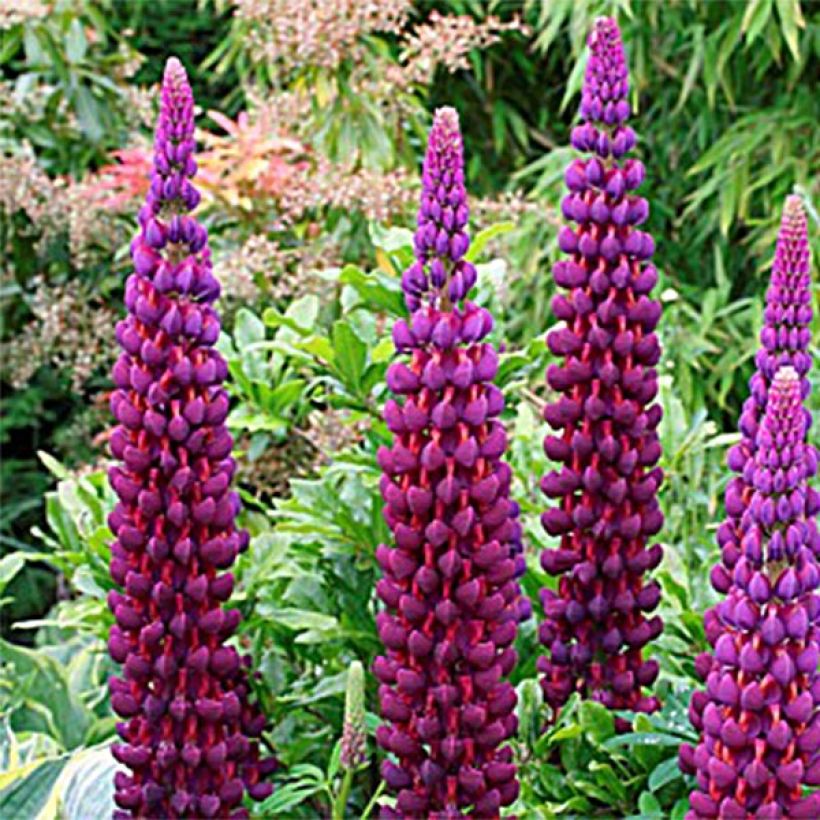

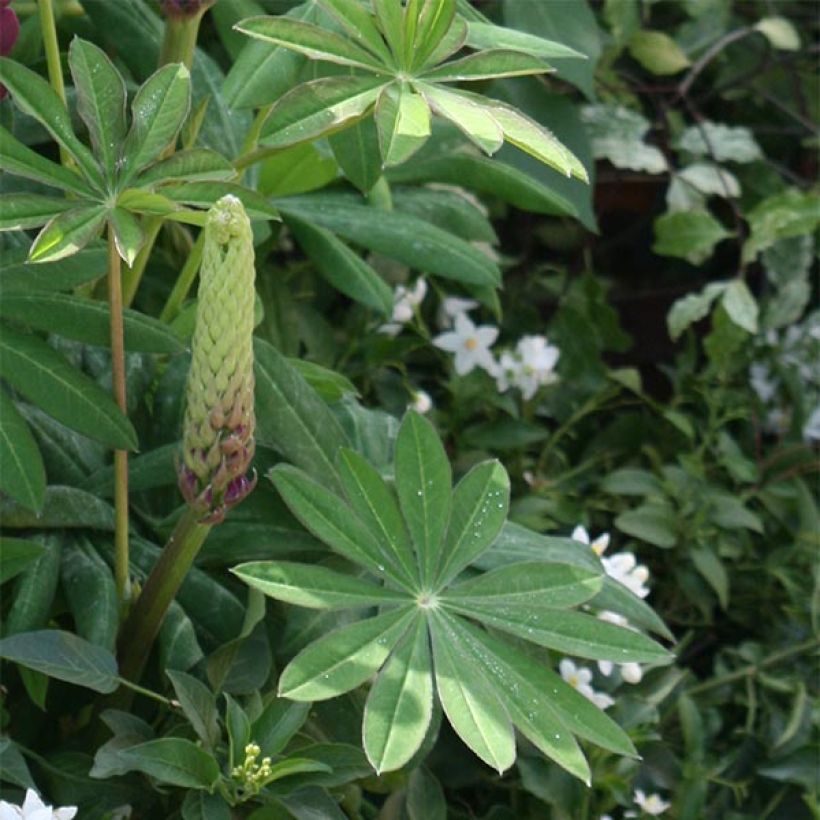

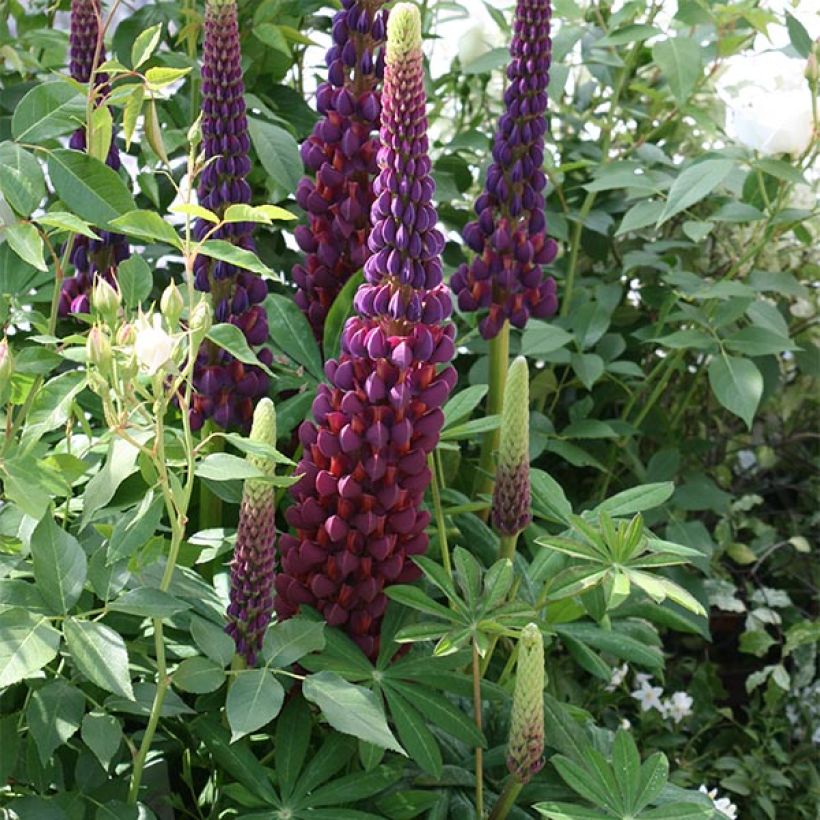

Flowering
Foliage
Plant habit
Safety measures
Botanical data
Lupinus
x polyphyllus
Masterpiece
Fabaceae
Garden Lupin, Large-leaved Lupin, Big-leaved Lupin, Russell Lupin
Cultivar or hybrid
ingestion
Cette plante est toxique si elle est ingérée volontairement ou involontairement.
Ne la plantez pas là où de jeunes enfants peuvent évoluer, et lavez-vous les mains après l'avoir manipulée.
Pensez à conserver l'étiquette de la plante, à la photographier ou à noter son nom, afin de faciliter le travail des professionnels de santé.
Davantage d'informations sur https://plantes-risque.info
Other Lupinus - Lupin
Planting and care
The Lupin 'Masterpiece' thrives in the sun, partial shade, and even under trees in spring. Place it in a light, well-drained, humus-rich, and limestone-free soil. It prefers a deep, sandy, slightly acidic soil in full sun. It is an easy-to-grow perennial that can even adapt to clay soils if properly amended. Protect the plant at the base in regions with harsh winters. Remove faded flowers, and the Lupin will bloom again in autumn. Keep the soil moist, especially during prolonged drought. Beware of leaves that are sometimes attacked by mildew and root rot (especially if the roots are dry). Lupins can be susceptible to leaf spots, galls, viruses, and their young shoots are often attacked by snails and slugs when vegetation resumes.
Lupins only live for 4 or 5 years. Keep some seeds to obtain surprisingly flowering in new colours.
Planting period
Intended location
Care
-
, onOrder confirmed
Reply from on Promesse de fleurs
Summer flowering perennials
Haven't found what you were looking for?
Hardiness is the lowest winter temperature a plant can endure without suffering serious damage or even dying. However, hardiness is affected by location (a sheltered area, such as a patio), protection (winter cover) and soil type (hardiness is improved by well-drained soil).

Photo Sharing Terms & Conditions
In order to encourage gardeners to interact and share their experiences, Promesse de fleurs offers various media enabling content to be uploaded onto its Site - in particular via the ‘Photo sharing’ module.
The User agrees to refrain from:
- Posting any content that is illegal, prejudicial, insulting, racist, inciteful to hatred, revisionist, contrary to public decency, that infringes on privacy or on the privacy rights of third parties, in particular the publicity rights of persons and goods, intellectual property rights, or the right to privacy.
- Submitting content on behalf of a third party;
- Impersonate the identity of a third party and/or publish any personal information about a third party;
In general, the User undertakes to refrain from any unethical behaviour.
All Content (in particular text, comments, files, images, photos, videos, creative works, etc.), which may be subject to property or intellectual property rights, image or other private rights, shall remain the property of the User, subject to the limited rights granted by the terms of the licence granted by Promesse de fleurs as stated below. Users are at liberty to publish or not to publish such Content on the Site, notably via the ‘Photo Sharing’ facility, and accept that this Content shall be made public and freely accessible, notably on the Internet.
Users further acknowledge, undertake to have ,and guarantee that they hold all necessary rights and permissions to publish such material on the Site, in particular with regard to the legislation in force pertaining to any privacy, property, intellectual property, image, or contractual rights, or rights of any other nature. By publishing such Content on the Site, Users acknowledge accepting full liability as publishers of the Content within the meaning of the law, and grant Promesse de fleurs, free of charge, an inclusive, worldwide licence for the said Content for the entire duration of its publication, including all reproduction, representation, up/downloading, displaying, performing, transmission, and storage rights.
Users also grant permission for their name to be linked to the Content and accept that this link may not always be made available.
By engaging in posting material, Users consent to their Content becoming automatically accessible on the Internet, in particular on other sites and/or blogs and/or web pages of the Promesse de fleurs site, including in particular social pages and the Promesse de fleurs catalogue.
Users may secure the removal of entrusted content free of charge by issuing a simple request via our contact form.
The flowering period indicated on our website applies to countries and regions located in USDA zone 8 (France, the United Kingdom, Ireland, the Netherlands, etc.)
It will vary according to where you live:
- In zones 9 to 10 (Italy, Spain, Greece, etc.), flowering will occur about 2 to 4 weeks earlier.
- In zones 6 to 7 (Germany, Poland, Slovenia, and lower mountainous regions), flowering will be delayed by 2 to 3 weeks.
- In zone 5 (Central Europe, Scandinavia), blooming will be delayed by 3 to 5 weeks.
In temperate climates, pruning of spring-flowering shrubs (forsythia, spireas, etc.) should be done just after flowering.
Pruning of summer-flowering shrubs (Indian Lilac, Perovskia, etc.) can be done in winter or spring.
In cold regions as well as with frost-sensitive plants, avoid pruning too early when severe frosts may still occur.
The planting period indicated on our website applies to countries and regions located in USDA zone 8 (France, United Kingdom, Ireland, Netherlands).
It will vary according to where you live:
- In Mediterranean zones (Marseille, Madrid, Milan, etc.), autumn and winter are the best planting periods.
- In continental zones (Strasbourg, Munich, Vienna, etc.), delay planting by 2 to 3 weeks in spring and bring it forward by 2 to 4 weeks in autumn.
- In mountainous regions (the Alps, Pyrenees, Carpathians, etc.), it is best to plant in late spring (May-June) or late summer (August-September).
The harvesting period indicated on our website applies to countries and regions in USDA zone 8 (France, England, Ireland, the Netherlands).
In colder areas (Scandinavia, Poland, Austria...) fruit and vegetable harvests are likely to be delayed by 3-4 weeks.
In warmer areas (Italy, Spain, Greece, etc.), harvesting will probably take place earlier, depending on weather conditions.
The sowing periods indicated on our website apply to countries and regions within USDA Zone 8 (France, UK, Ireland, Netherlands).
In colder areas (Scandinavia, Poland, Austria...), delay any outdoor sowing by 3-4 weeks, or sow under glass.
In warmer climes (Italy, Spain, Greece, etc.), bring outdoor sowing forward by a few weeks.

































